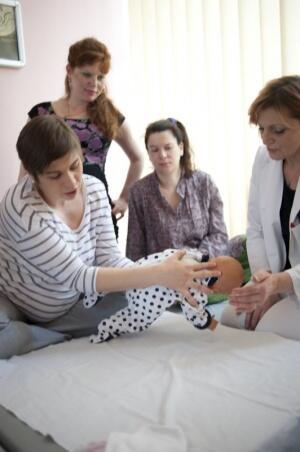On this International Day of the Midwife, UNFPA, the United Nations Population Fund, and the International Confederation of Midwives (ICM), celebrate the work of midwives in contributing to the miracle of birth—and for the myriad other things they do every day to contribute to the wellbeing of mothers and children around the world. The tireless work of midwives is also a crucial step towards achieving the Millennium Development Goals (MDGs) 4 and 5, targets A and B, by 2015 and beyond.
In addition to their work, caring for women during and after childbirth, to ensure safe deliveries and providing essential newborn care, midwives provide a wide range of assistance in humanitarian emergencies. And they train and supervise community health workers to provide health information and promote safer practices.
Importantly, midwives are also key to ensuring universal access to voluntary family planning. This alone could help prevent 87 million unintended pregnancies—so many of which result in unsafe abortions in developing countries—and close to a third of all maternal deaths. About 222 million women want to delay or avoid pregnancies but lack the modern means to do so. Midwives’ invaluable counseling skills are instrumental in empowering young couples and women to make the decisions that are right for their particular situations.
Economic differences, inequalities in countries and inaccessibility of services in some areas contribute to a shortage of some 350,000 midwives at a time when the world needs midwives more than ever.
We urge all nations to work together to address the inequalities and inaccessibility of midwifery services. We encourage them to support quality training, innovative technologies and an enabling environment for midwives to match the vital role they play in communities and societies, especially in developing countries.
On this International Day of the Midwife, UNFPA and ICM reiterate their commitment to investments to strengthen quality midwifery, which will, in turn, promote healthier families, communities and nations.


